ACC and key staff have been engaged in several overseas projects and studies for UNOPS, Afghanistan, the Republic of Sudan and The World Bank.
Ministry of Agriculture and Forestry, Republic of Sudan. Project entails feasibility studies for rice mills, sugar mill with co-generation, dairy production, livestock and meat processing, horticulture (mangoes and citrus) processing and juice plant, and mixed cropping farms. Projects are located in six diverse regions with a total farm area of 225,000 acres. Feasibility studies include development and rehabilitation of lift irrigation canals from the Blue Nile, White Nile, Nile rivers and ground water resources for irrigation. The scope of work included delivery of Initial Environmental Impact Assessments and Socio-Economic surveys for the proposed industries. Feb 2010-June 2010.
- Integrated Sugar Plant on an area of 25,000 feddans at El Suki
- Integrated Sugar Plant on an area of 25,000 feddans at Abgar
- Mixed farming on an area of 100,000 feddans at Um Jawaseer
- Mixed farming, Dairy and Livestock production and processing on an area of 25,000 feddans at West Umdarman
- Horticulture farming and processing project on an area of 10,000 feddan at Shendi
- Integrated Rice farming (with soya bean) and processing plant on an area of 25,000 feddan at Jazira Injaid (White Nile rice plantation)
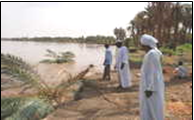


Feasibility Study and Preliminary Design for Peshawar–Torkham–Kabul Motorway Project. Pakistan by virtue of its geo-strategic location is a junction of South Asia, West Asia and Central Asia. It is a pathway from the sea ports in Pakistan to the Central Asian Region. Pakistan can be termed as a bridge between South Asia and Southwest Asia. Keeping in view the growing demand of trade between the two countries, the Government of Afghanistan requested the Government of Pakistan to develop Peshawar-Kabul Motorway. Pakistan’s vision to access the CARs shall also be facilitated through this Motorway. ACC to carried out a detailed feasibility study and preliminary design for the Peshawar-Kabul Motorway. The project comprises of the sections Peshawar-Torkham 50 Kms; Torkham-Jalalabad 76 Kms, and Jalalabad-Kabul 155 Kms. NHA
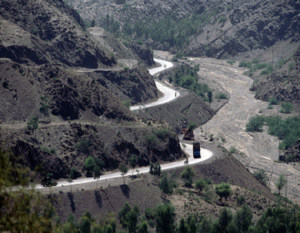
Feasibility Study and Preliminary Engineering Design of Ghulam Khan to Khost, Afghanistan for National Highway Authority.
Re-engineering and detailed design of NEW MRRD Office Building at Darulaman Kabul, Afghanistan for the UNOPS/World Bank.

Detailed design of Customs Headquarters building, Kabul. UNOPS
Goverdish Schools – Structural Analysis, Nooristan, Afghanistan. UNOPS/USAID
Economic Impact of Transit Trade, AFGHANISTAN: Emergency Customs Reform and Trade Facilitation Project. Carried out technical and economic analysis, reviewed and provided expert advice to the Bank on potential pitfalls in prior analyses. World Bank 2009

Rapid Logistics Review, Transit of Afghan Goods through the Pakistan – Afghanistan Border Crossings and the Implication of Transit Trade on the Economies. Study involved analysis of regional transit trade and economic benefits through trade facilitation. World Bank, 2009
Supervision and evaluation of $US143 million National Emergency Employment Program (NEEP)/National Rural Access Program (NRAP), Afghanistan. Scope included review of project implementation in the field by UNOPS, ILO, CARE and others, review of budgets and manpower utilization, negotiations with UNOPS and others. NEEP was one of the first national priority programs initiated through the National Development Framework (NDF) in all 34 provinces of Afghanistan. The Ministry of Rural Rehabilitation and Development (MRRD) was responsible for the preparation and execution of NEEP, in partnership with Ministry of Public Works (MoPW) and Ministry of Irrigation, Water Resources and Environment (MIWRE). The program was developed to ensure immediate and tangible benefits for poor and vulnerable Afghans throughout the country. The objectives of NEEP were (i) provision of a safety net for vulnerable people by creating productive employment opportunities; and (ii) establishment of effective mechanisms for developing infrastructure assets through labor-based methods and a private sector led approach. NEEP activities involved a wide range of sectors (roads, irrigation, urban development, natural resource management, soil conservation, and reforestation) and themes (targeting poor and those at risk including vulnerable women, disabled, destitute pastoralists and agricultural labor affected by efforts to eradicate opium poppy production). With the gradual transition from humanitarian assistance towards a more developmental oriented approach, including the emergence of other programs contributing to the Government’s Livelihoods and Social Protection Policy, the original NEEP strategy was reviewed and re-orientated to focus on interconnectivity, quality and sustainability of the rural road network throughout Afghanistan, as the National Rural Access Program (NRAP). The World Bank, 2004/2005
Preparation of JSDF US$20 million National Emergency Employment Program (NEEP)-Disarmament, Demobilization and Reintegration (DDR) and the Rural Livelihood Support (NEEPRLS) Grant Proposal for Afghanistan – The DDR program was initiated in February 2003 at the Tokyo conference. DDR supported the disarmament of 63,380 former officers and soldiers of the Afghan Military Forces (AMF) as well as the decommissioning of 259 AMF units. Fifty-five thousand eight hundred and four (55,804) ex-combatants chose one of the reintegration options, which further benefited 53,415 of them, leaving aside 2,759 drop-outs. The approach to reintegration was holistic and reintegration options ranged from agriculture, vocational training and job placement, small business opportunities, demining, teaching, government jobs, wage labor and joining Afghan National Army (ANA) or the Police. A successful program, the reintegration phase of DDR was completed by mid 2006, marking the end of the Disarmament, Demobilization and Reintegration process in Afghanistan – in time and within costs (USD 141 million). In addition, as the reintegration phase was brought to an end, 25% of the ex-combatants found a long-term and sustainable activity. World Bank, 2003
Somalia – Transport Sector Needs Assessment (TSNA) – The African Development Bank (AfDB) undertook a series of infrastructure needs assessments in Somalia’s key infrastructure subsectors. These include the Transport Sector Needs Assessment (TSNA), as well as assessments in the energy, ICT, and water and sanitation subsectors. ACC’s staff were involved in preparing the key deliverables for the Federal Government of Somalia’s (FGS) Economic Recovery Plan. In addition, the study also fed into an overall Infrastructure Action Plan (IAP) for Somalia – i.e. a pipeline of priority and costed projects – and also provide input for Somalia’s new National Development Plan (NDP). The overall objective of the TSNA was to determine short, medium and long-term needs and investments in the transport sector that will develop sector policy and institutional and funding arrangements and deliver tangible results in the transport sector infrastructure development for economic recovery through sequenced investments. UNOPS
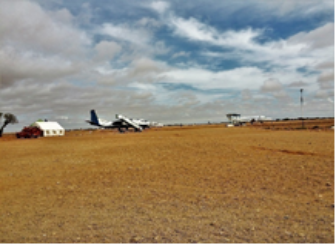
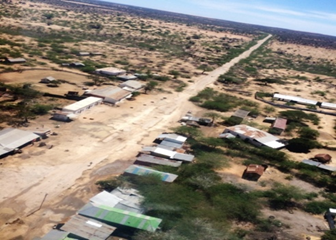
South Sudan Rural Roads Project (SSRRP)– South Sudan’s transport system is deficient in terms of both quantity and quality of infrastructure, and level of services as well as in terms of investments and maintenance. The system is inadequate and does not fulfill its function as a catalyst for the country’s economic growth, and social and political integration. To address these issues and facilitate the road transport sector’s transition into a single strategic approach in the long run, a Road Sector Development Program has been established based on the recommendations of the studies undertaken under this project. The purpose of this program is to achieve greater synergy and coherence among various projects and donor/government funds within a framework aligned with development partners’ requirements and strategic goals of the government. UNOPS
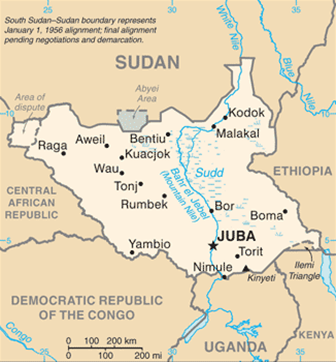
Detailed Design, Sustainable Agriculture Investment and Livelihood (SAIL) Project, Egypt (USD 85 mil). Services provided for detailed project designing of all infrastructure related investments – solar power and pumps, irrigation water supply, low-cost housing, efficient irrigation systems, lift irrigation, soil improvement and other components; community development and livelihoods; and credit etc. Prepared working papers and annexures for the aide memoire with the team for a Detailed Project Description; Institutional Aspects and Implementation Arrangements; Environment and Social Note; Draft Project Implementation Manual (PIM); Community Development Component; Agriculture Development Component and Environmental and Social Issues. IFAD, June-July 2014.
Project Preparation, Sustainable Agriculture Investment and Livelihood (SAIL) Project (USD 85mil). Services provided for project preparation of all infrastructure related investments under the project. Assessed and characterized the main features of infrastructure rehabilitation activities in particular of relevance to smallholder farmers with potential for high impact; identified the main obstacles and bottlenecks caused by the lack of proper infrastructure in the target area and developed proposals for activities to be funded under the infrastructure rehabilitation component inclusive of cost-benefit analysis and implementation approach. Outputs included Draft Project Implementation Manual (PIM); Environmental and Social Review Note; and papers on Gender and Poverty, Community Development, the Agricultural Development and the Environmental and Social Issues. IFAD, 31st March-26th April 2014.
